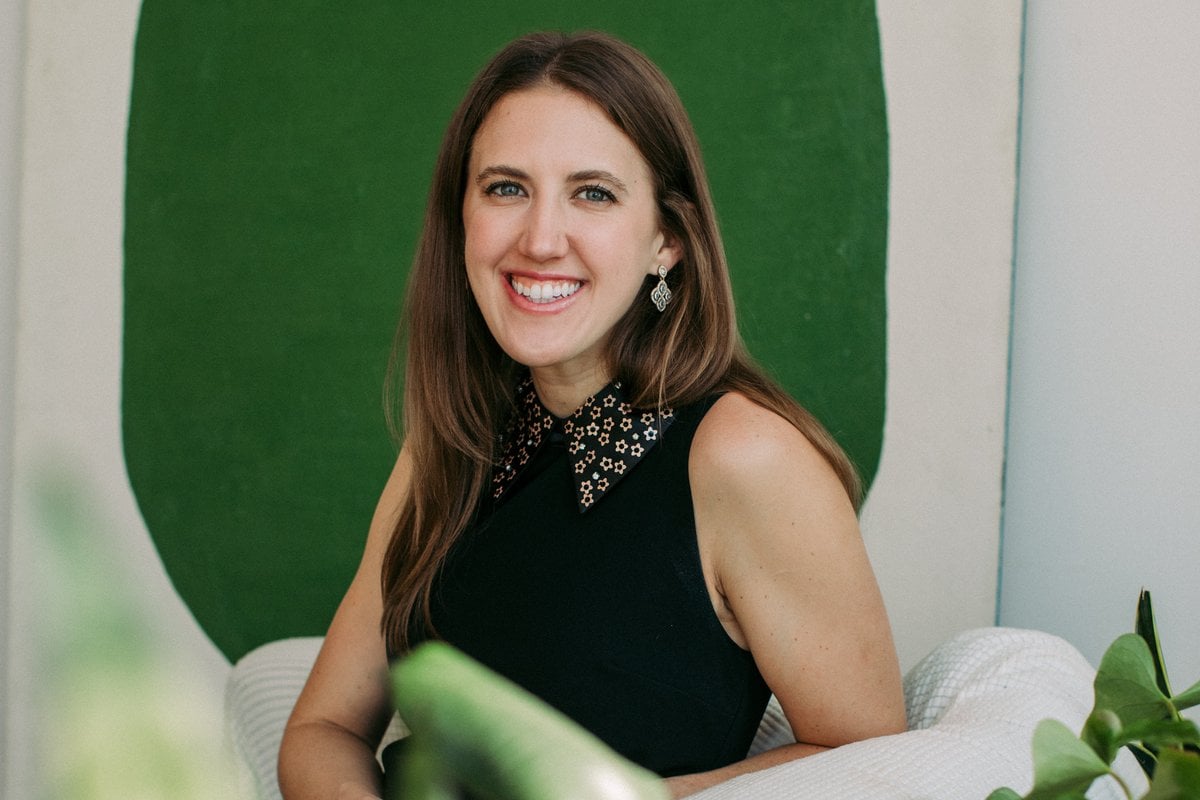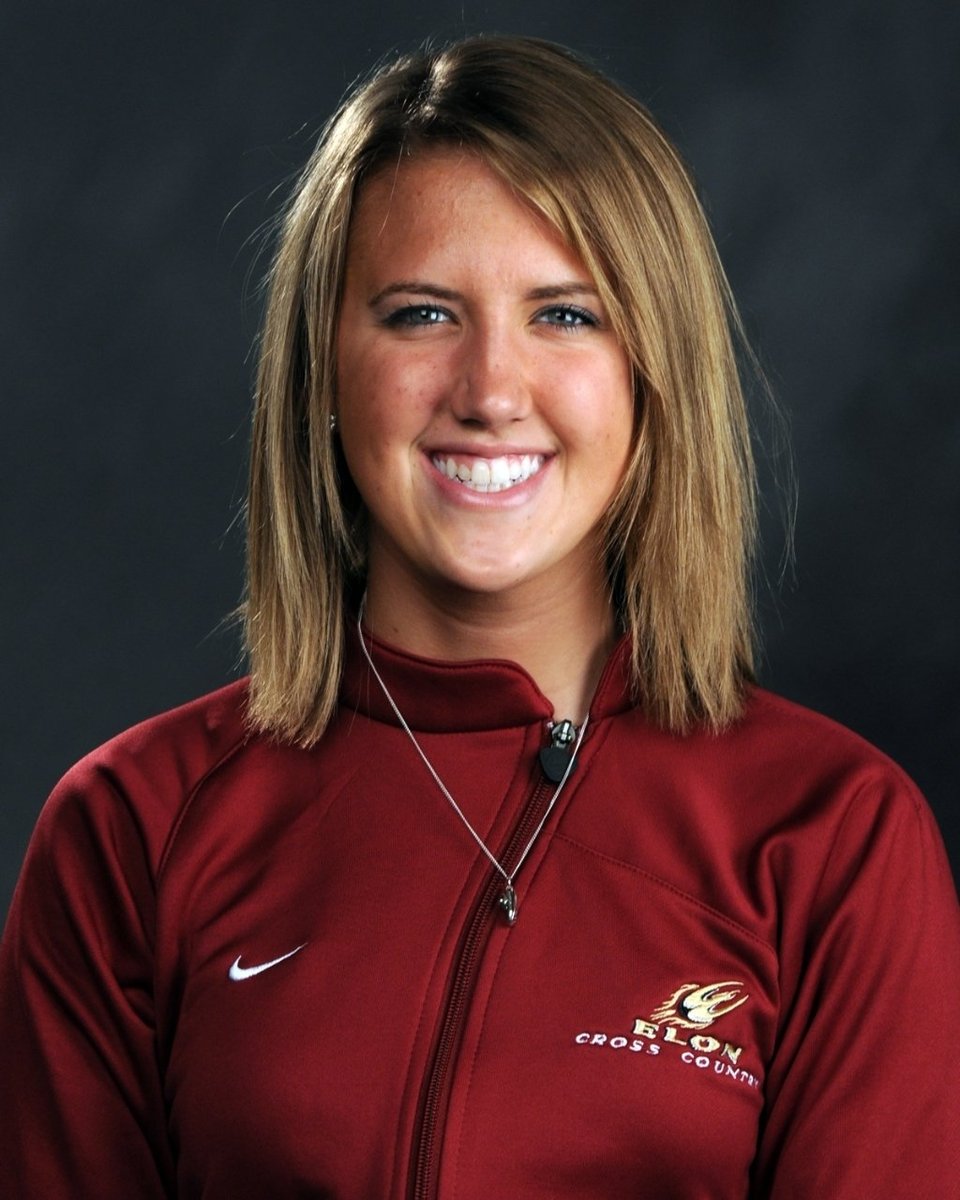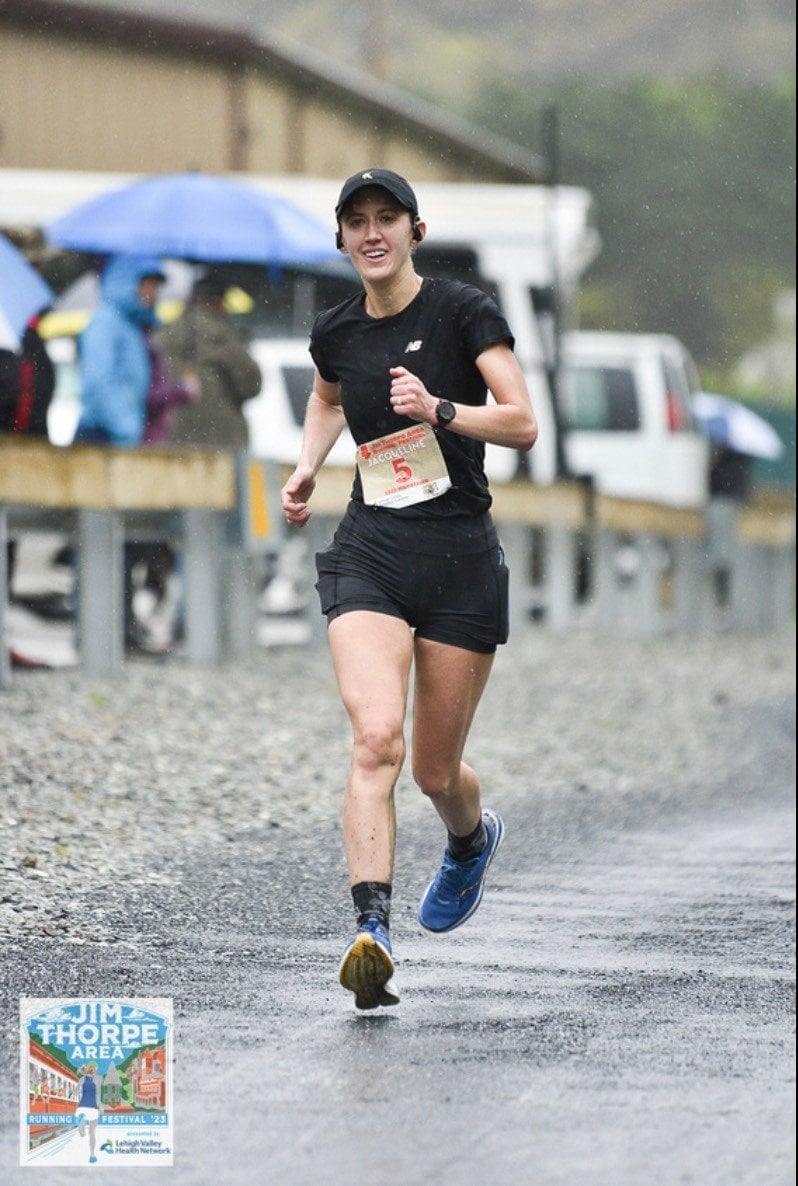
At 18 years old, Jacqueline Alnes was at the cusp of what should have been some of the best years of her life. She was new to college, away from home for the first time. To describe Jacqueline as a 'runner' would be an understatement. Track running was her life.
But then she got a cough. It wasn’t anything major, at least she didn’t think it was.
"You don't really think much of those things when you're 18," Jacqueline told Mamamia's No Filter.
Still, she had it checked out and was prescribed some medication. Then things got worse.
"I fainted in my dorm room after I took the pills," says Jacqueline.
Listen to Jaqueline Alnes on No Filter.
"I hit my head on a desk chair, which wasn't that bad. But I was out for a minute and when I came back, I remember waking up and everything was just spinning around me."
Jacqueline was told she had an allergic reaction to the pills. Both her doctor and coach agreed.
"And I trusted them, obviously, because why wouldn't I? And I hoped for that too. But the days that followed, I kept feeling like I was like living in a cloud or something, like the world was just a little bit foggy, just a little bit out of reach in my body."
She told her coach, who told her to "run through it". The doctor had said she was fine, after all. The trainer took her blood pressure and also said she was fine.



Top Comments